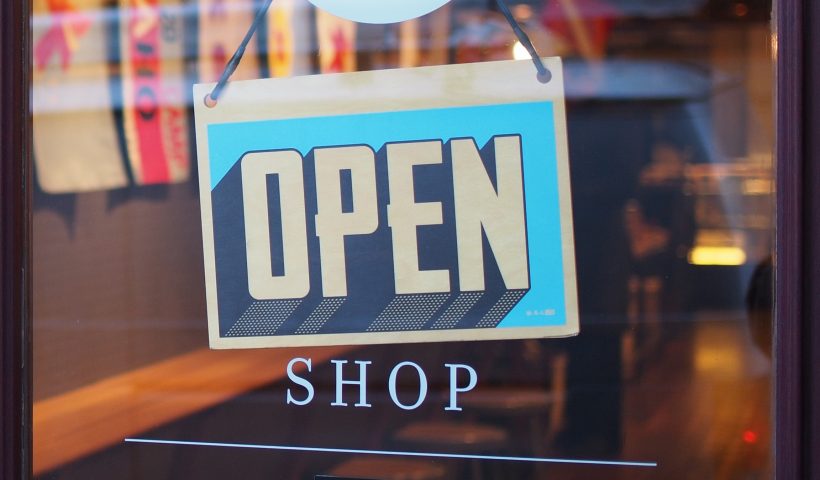Interview with Jochen Werne, CDO/CVO Prosegur Germany, on more efficient processes after the lockdown
In his expert interview, Jochen Werne sheds light on central aspects from the perspective of gastronomy and retail for more efficient processes after the lockdown.
Read original interview by Prosegur Germany: LINK HERE. Translation by DeepL.com
Mr Werne, what are your personal observations regarding the economy and society after a year of crisis?
Of course, every crisis first of all brings suffering and a pandemic naturally brings suffering for the individual and his or her relatives when the fate of the disease triggered by the virus befalls him or her. Everything else is like a chain reaction. Starting with the state, which has the sovereign task of protecting its citizens and, in the case of a pandemic, also enforces this by shutting down social life. This, in turn, results in drastic losses of income for closed companies while costs continue. If liquidity is insufficient, this then leads to insolvencies, job losses and, in the worst case, an economic crisis. Historically, however, every crisis – and this one is no exception – has also led to the economy becoming more efficient and technological trends experiencing an acceleration.
At the moment – in this situation that is so difficult for many – I observe an incredible and inspiring creativity. It starts with small and medium-sized enterprises, which are trying to adapt agilely to what feels like a new situation every day, to improve, to optimise costs and to position themselves optimally for the time after the crisis. This gives us hope for the time after the crisis and it is a great motivation to be able to contribute with a fantastic team.
Every crisis demands a certain resilience from companies. The National Academy of Science and Engineering (acatech) presented an impulse paper entitled “Resilient Pioneers” at the German government’s digital summit in November. In it, Prosegur with its digital smart cash solution is named as a best practice example for a future-oriented and cost-optimised cash management for retail and gastronomy. How does Prosegur Smart Cash work?
With Prosegur Smart Cash, restaurateurs, retailers or wholesalers can insert cash directly into the Smart Cash device for safekeeping. The special feature – in contrast to a simple safe – is that once inserted, the device automatically takes over the daily counting and accounting of the cash. The time and thus cost savings in our customers’ internal processes are sometimes considerable. The device has a communication protocol that allows the value of the collection to be transferred to the client’s bank account within 24 hours. Once the money is in the device, the responsibility and management lies with Prosegur Cash’s specialised team, which is responsible for transporting and holding the money to the bank branch. This also eliminates the sometimes daily and not harmless trip to the bank branch.
What are the advantages of Prosegur Smart Cash?
In summary, it saves our customers time and money and creates more transparency and security. Prosegur Smart Cash customers can store their cash quickly and securely, reducing unknown losses. Prosegur Smart Cash enables time savings by automating the counting process and in the daily settlement of cash. In addition, thanks to Prosegur Smart Cash, the customer does not have to go to the bank to deposit the cash, as Prosegur provides security in managing and handing over all the cash to the bank, which avoids dangerous situations for the customer and helps them save time so they can devote themselves fully to their business. In addition, a Smart Cash solution reduces the frequent and expensive phenomenon of the so-called “unknown loss”.
What is “unknown loss”?
This is the loss of inventory or other business resources due to a variety of factors, such as internal and external theft, administrative failure, fraud or cash flow errors. This situation is often a key problem for restaurateurs and retailers.
What do you observe, in terms of their customers and how they prepare for the time after the lockdown?
There is an unbelievable longing to finally be able to get in touch with their customers again, to be able to passionately offer them their own services again. Many small and medium-sized companies, not to mention the big ones, have invested massively in hygiene concepts and tried to use the time to optimise their own processes in terms of costs.
We ourselves have never had so many consultations regarding smart cash solutions as we do today. This has increased even more after clear statements and studies by the World Health Organisation (WHO) and the Bundesbank pointed out that the hygienic cleanliness of cash is at least equal to that of card payments and that the risk of infection in relation to our daily payment methods is minimal in both cases.
Interestingly enough, we have also noticed a high demand for efficiency lifting among companies with small cash volumes and have used the time to be the first company in Germany to develop a corresponding very cost-effective digital solution for this group as well. A crisis always forces everyone to become more efficient and, in my opinion, there is nothing better than doing this together. This is the only way to emerge stronger from a crisis.

